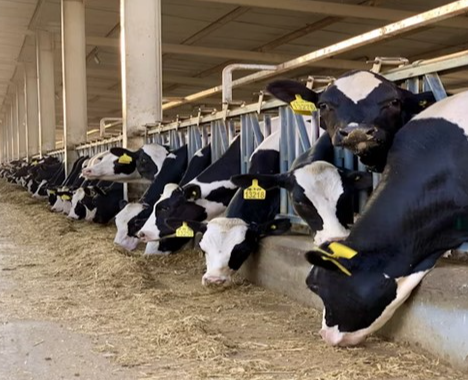
The dairy industry is a key subsector of Agriculture contributing to 4%,14% and 44% of the national, agriculture and livestock GDP respectively. The subsector is a source of livelihood to over 2 million small holder dairy farmers and employs approximately 1.2 million people both directly and indirectly. In 2023 the national production was 5.2 billion litres. Upstream, the industry supports several enterprises including 423 milk coolers; 1,402 milk bars; 463 milk dispensers; 104 mini dairies; 92 cottage industries; and 35 milk processors.
The Kenya Dairy Board has partnered with USAID Kenya Investment Mechanism to develop a 10- year Dairy Industry Sustainability Roadmap (KDSR). This framework is a collective responsibility by industry stakeholders aimed at catalysing and accelerating industry-wide transition to a more sustainable, competitive, and low-carbon footing industry marked by enhanced economic viability of milk producers and processors. It is anticipated that the framework will enhance higher self-sufficiency; improved food safety & nutrition; better care for dairy animals; and reduced impact on the environment in compliance with laws, policies, and conventions.
Development of this framework entailed consultations and consensus building with leading industry actors such as milk processors, producer organizations, suppliers, financiers, regulators, and policy makers. Their role was to assess, identify and develop sustainable solutions to address critical challenges affecting the industry.
The Kenya Dairy Industry Sustainability Framework has four key pillars: Prosperity, People, Planet and Principles of Governance with the following objectives:
- Production of sufficient milk to meet domestic demand and export targets in a competitive way.
- Supply of quality, safe and affordable milk while providing decent livelihoods across the dairy industry
- Lowering the environmental footprint of the dairy industry to support the country in meeting its Nationally Determined Contribution (NDC) targets.
- A properly governed and highly inclusive dairy industry.
- Reducing average age of dairy farmers by 10 years and increasing women’s participation to at least 50% at all value chain node United Nations Social Development Goal
- Production of sufficient milk to meet domestic demand and export targets in a competitive way.
- Supply of quality, safe and affordable milk while providing decent livelihoods across the dairy industry
- Lowering the environmental footprint of the dairy industry to support the country in meeting its NDC targets.
- A properly governed and highly inclusive dairy industry.
- Reducing the average age of dairy farmers by 10 years and increasing women’s participation to at least 50% at all value chain nodes.
The roadmap proposes a set of solution-based, climate-smart Flagship Initiatives designed to advance progress towards the agreed targets. These Flagship Initiatives include:
- Expanding Access to Milk Coolers. This initiative aims at distributing climate-smart on-farm coolers to a sub-set of small commercial farms or farming clusters.
- National Biogas Acceleration. This initiative proposes installation of 150,000 biogas kits over a ten-year period. Each year, 15,000 kits would be installed. The initiative would further promote commercialization of biogas, e.g., electricity production, fueling vehicles and farm machinery, packaging, and distribution; and promoting the use of spent biogas digestate for crop fertilizing.
- Dairy Plant Retrofitting. This initiative aims to improve the energy and water use efficiency of Kenya’s dairy processors and chilling plant.
- Dairy Farm Tree Planting. This initiative is designed to increase tree and hedgerow cover on dairy farms to achieve multiple benefits, in line with Kenya’s national tree planting goal.
- Cow Barn Design and Upgrade. This initiative is designed to support farmers to construct proper cow barns which maximize cow comfort and welfare, while improving climate-smart milk production.
- Engaging Youth in Dairy. This initiative aims to expand and commercialize school-based dairy farms to enhance food security and nutrition, increase national dairy productivity, and teach youth about climate-smart farm management and operations through on-the-ground learning and engagement.
The expected outcomes are increased volume of milk available for processing and value addition, profitability and sustainability of dairy farmers leading to growth in the quantity and value of dairy exports. There will be increased employment creation and contribution to the national GDP and women’s participation to at least 50% at all value chain nodes.
